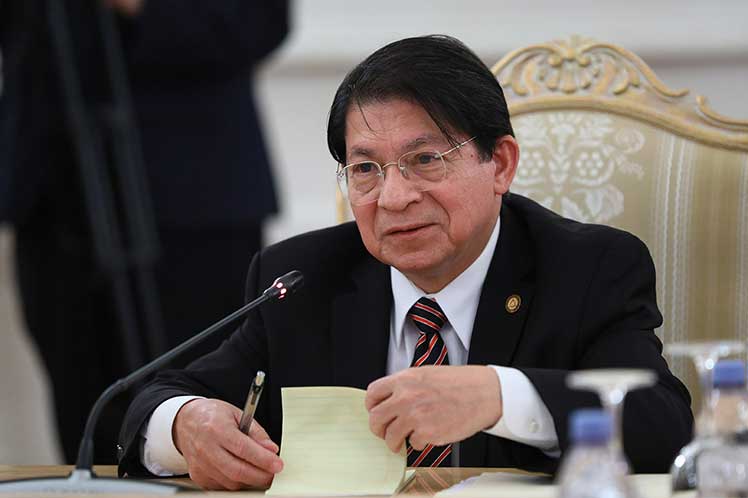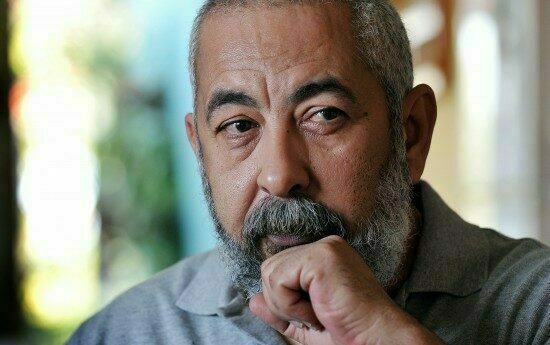What began as a conversation out of curiosity about social changes and law in Mexico, led the retired minister of the Supreme Court of Justice of the Nation, José Ramón Cossío, and the anthropologist, Claudio Lomnitz, to a series of reflections on what much that these disciplines are needed and what they can contribute to understand the realities of the country and they share them in the book of their co-authorship “The Jurist and the Anthropologist” edited by Debate.
In an interview, Lomnitz admits the arrogance of anthropologists and jurists that led these disciplines to turn their backs or reach expressions such as the one according to which anthropologists dedicate themselves to “real Mexico” and lawyers to “fictional Mexico” or that jurists they are certain that everyone, whether they like it or not, has to deal with the law.
In any case, exposes are totally wrong ideas. “Finally, law, laws and regulations, whether legal or not, are part of reality; they are not a thing that is apart from reality. So once you realize that, you say what did I do?! How could I not have seen that the law is a constitutive part of reality whether it is applied or not applied, even if it is detached from what the reality is? people do is it important that there is such a rule even to understand what people do or do not do?!
The book collects a series of questions and answers about their respective disciplines regarding the diverse realities of Mexico. That enormous diversity that becomes a huge pain for lawyers and good news for lawyers.
The also professor at Columbia University, United States, says that sometimes lawyers lose sight of the fact that the idea of justice can mean many things, or that there are ideas of justice that come from religion or that there are forms of justice synthesized in popular sayings, like the one that says that “a bad settlement is better than a good lawsuit” or that “history will acquit me”.
“That is an example that an anthropological vision is important for Law.” The anthropologist also recounts his discussions with the minister about informal arrangements for conflict resolution, which have occurred and continue to occur throughout the country’s history.
He shares that Minister Cossío “understands perfectly that in the Mexican case, the law has been more a horizon of struggle or construction, than a reality, because, for example, the representatives of the State have never had a very good coverage of the entire territory. ”.
It recounts what for anthropologists is obvious: that in the processes of justice, for example in Mexican agriculture, there are key characters such as the cacique, the priest or the teacher, who represent the voice of the people.
After discussing this with the jurist, he points out that this has happened because there have been places where people have not had equal access to the courts or to the right and fair.
He emphasizes that if the idea of the rule of law implies equality before the law, it must be taken into account that there is a territory where there is much more access to the institutions of law than others or where there are none.
So, it raises that, when that happens, the question is how do these processes take place? How is social conflict resolved when the justice apparatus is unequally distributed? And how does that inequality distort the apparatus of justice?
The approach to this situation leads him, almost seriously, to speak of corruption in the justice system.
He explains that these are distortions that have to do with the inequality of access to justice institutions that has had serious expressions in places like Reynosa, Tamaulipas, when it was besieged by the Zetas.
To the question of how does an anthropologist understand the way in which Mexicans resolve their conflicts? How much do they use formal means? And how much of the law? He replies that to analyze that you have to cut corners and he does.
“To put an end to a generalized idea, for example: Mexicans do not like the law or Mexicans what we always want is the law or the only thing we want is the rule of law, either of these two positions is in the end false and at the same time time both have a lot of truth”.
And it is that, he points out that, just as there may be a person who prefers “a bad settlement, than a good lawsuit” and reaches an informal solution to a conflict so as not to reach legal instances, he also demands equality before the law, for example in something as simple as when he is queuing for a procedure and suddenly people who were not lined up get in line before him.
It is also noteworthy that, although in any society it is desirable and essential that there be many conflict resolution mechanisms and that most of them are resolved informally, there are also some that are alarming, such as those that go to the extreme of lynching and accusing a deficit in the justice system.
The point is to understand this type of tension, he stresses.
The also member of El Colegio Nacional takes the talk to the subject of the diversity of the country. “It is hard for us to understand the complexity of a country like Mexico.”
It exposes some features of that complexity. Mexico and the United States have a very high degree of integration, not only because of migration to both sides of their common border; likewise, in various regions of the territory there are tensions between the countryside and the city, between regions, which involve native peoples, peasants and rural communities.
“That for an anthropologist is good news, but for a jurist it is very complicated because it is assumed that Mexico is governed by a normative order, which is the maximum statement from which laws are derived (the Constitution) and laws should not be contradictory, one with the other; So, if you have many Mexicos, how do you make it so that the same regime works and if it is not going to be the same regime, how do you design a multiplicity of regimes that can be articulated in a way that justice can work?








